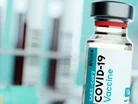G7 Pledges to Deliver 870 Million COVID Vaccine Doses

Global leaders at the recent G7 summit in Cornwall have pledged to delve into their procurement stores to supply developing countries with millions of vaccines. U.S. President Joe Biden and British Prime Minister Boris Johnson announced respective donations of 500 million and 100 million vaccines, at least half of which they intend to deliver by the end of 2021.
Public procurement during the pandemic has rapidly increased as governments and cities rushed to obtain personal protective equipment (PPE), COVID testing kits, and vaccine doses. If effective, the push to vaccinate the global population will help minimise the risk that deadly variants spread.
What the IMF Said
‘The coronavirus pandemic will not end until everyone has access to vaccines...Worldwide access offers the best hope for stopping the pandemic, saving lives, and securing a broad-based economic recovery’, stated David Malpass, President of the World Bank Group, and Kristalina Georgieva, Director of the IMF. Both organisations will work together with developing countries to help them finance and put into place rapid procurement plans.
How Will the Global Procurement Operation Work?
Right now, COVID-19 Vaccines Global Access (COVAX) is the world’s primary initiative to ensure that all countries, regardless of GDP, get access to vaccines. Led by Gavi, the Vaccine Alliance, the World Health Organisation, and the Coalition for Epidemic Preparedness Innovations, the organisation has already shipped more than 87 million COVID vaccination doses to 131 countries.
Essentially, the U.S. and the UK, in addition to any other nations that contribute to the global vaccination effort, will donate the majority of their doses through COVAX. As of June 10th, the U.S. government will procure and ship 500 million Pfizer-BioNTech vaccines. Come August, COVAX will start working with country-level procurement teams to deliver the doses—200 million in 2021 and 300 million by June 2022.
In Ghana, UNICEF’s rollout has been successful thus far. According to Arthur Osuji, a UNICEF Ghana Supply and Logistics specialist, the organisation has already reached 80% of health workers with the first shot. Said UNICEF, ‘We are working to ensure that all countries participating in the Global COVAX Facility have equitable access to 2 billion doses of the COVID-19 vaccine by the end of 2021’.
Is It Enough?
While the vaccine donations are a good first step, international public health officials argue that the G7 hasn’t gone far enough. ‘We welcome the generous announcements about donations of vaccines and thank leaders’, said Dr Tedros Adhanom Ghebreyesus, WHO Director-General. ‘But we need more, and we need them faster’.
As we move into the third quarter of 2021, vaccine procurement will spike in urgency. COVID cases have skyrocketed in India, and global dosage shortages mean that many countries are facing new outbreaks without access to jabs. ‘We call on governments, pharmaceutical companies, and organisations involved in vaccine procurement and delivery to [increase] public information regarding vaccine contracts, options, and agreements’, the IMF stated.
What’s the Rush?
Unique from other procurement operations, the rapid expiration date of vaccinations and the rising death rates around the world have given the COVAX initiative unprecedented urgency. ‘As we strive towards our goal of ending the acute phase of the pandemic’, said Dr Seth Berkley, CEO of Gavi, ‘we look forward to working with countries to ensure these doses pledged are quickly turned into doses delivered’. The IMF concurred. ‘Distributing vaccines more widely is both an urgent economic necessity, and a moral imperative’.



